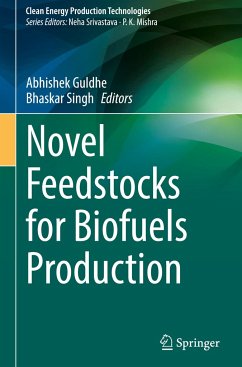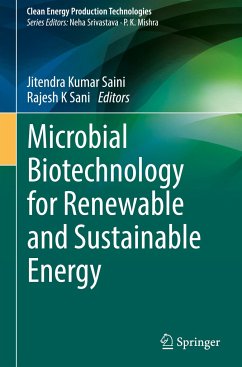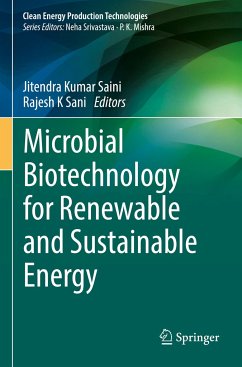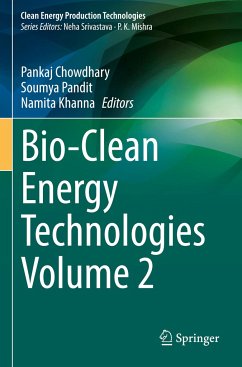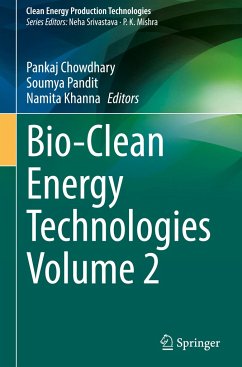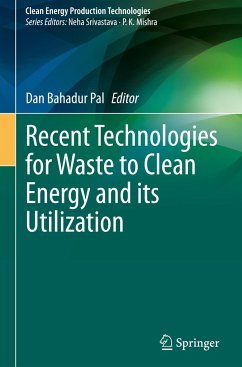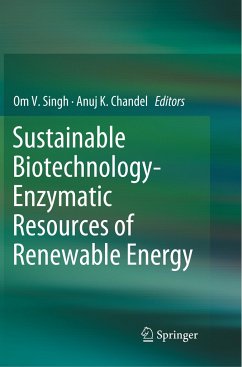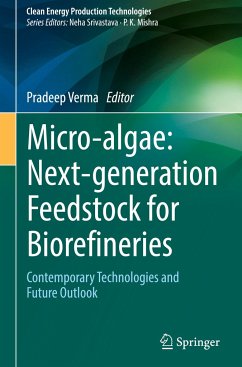
Novel Feedstocks for Biofuels Production
Versandkostenfrei!
Versandfertig in 6-10 Tagen
151,99 €
inkl. MwSt.

PAYBACK Punkte
76 °P sammeln!
This book critically evaluates recently investigated feedstock for biofuels production. Biofuel sector is rapidly evolving to cater the renewable energy demands. Novel and advanced feedstock are being investigated for their techno-economic feasibility. Environmental concerns, food vs fuel debate, energy security, economic feasibility, and availability are the major drivers for exploring different feedstock for biofuel production. This book explores a wide range of potential biofuels feedstock, their functional concepts, recent advancement, novel technique and critical evaluation with other ava...
This book critically evaluates recently investigated feedstock for biofuels production. Biofuel sector is rapidly evolving to cater the renewable energy demands. Novel and advanced feedstock are being investigated for their techno-economic feasibility. Environmental concerns, food vs fuel debate, energy security, economic feasibility, and availability are the major drivers for exploring different feedstock for biofuel production. This book explores a wide range of potential biofuels feedstock, their functional concepts, recent advancement, novel technique and critical evaluation with other available biofuel feedstock. This book also discusses future prospects of biofuel production. It is a useful read for students, researchers, faculty, industry and policy makers in the biofuel field.





